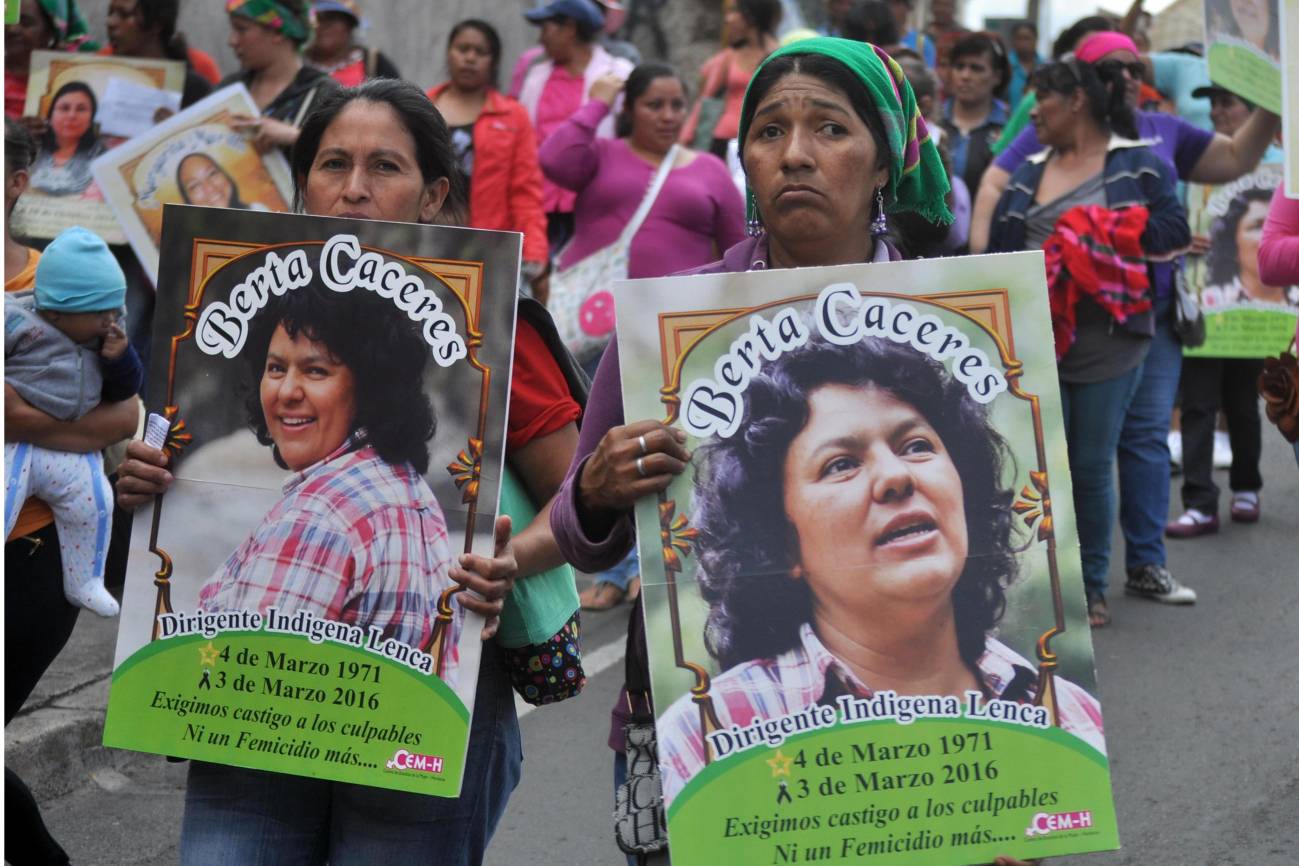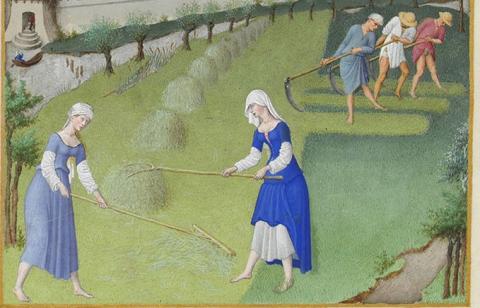Reactions to a quantitative study of murders of women environmentalists around the world
A study based on data from the Environmental Justice Atlas says that 81 women were murdered worldwide for their environmental activism: one of them in Spain, 7 in Colombia, 5 in Honduras and 4 in Peru, among other countries. The study, published in Nature Sustainability, says that violence against women defenders is concentrated in conflicts around mining, agribusiness and industrial projects in the Global South. The first author of the study is Dalena Tran, a researcher at the Institute of Environmental Science and Technology of the Autonomous University of Barcelona.

Protest in Honduras over the murder of Berta Cáceres. / EFE.
Susana Borràs - defensoras EN
Susana Borràs Pentinat
Associate Professor of Public International Law and International Relations at Rovira i Virgili University, coordinator of the Master's Degree in Environmental Law and researcher at the Tarragona Centre for Environmental Law Studies (CEDAT)
Criminalisation, violence against, and murders of environmentalists, with the complicity of governments, are increasingly recurrent events in many parts of the world. For this reason, this article contributes to making visible the situation of violence against environmental defenders, in particular violence against women environmental defenders (WEDs), who resist extractivist violence with their bodies and territories. However, there are no disaggregated data that analyse gender-based violence in environmental conflicts. This is why this analysis based on data from the Environmental Justice Atlas (EJAtlas) is so important; since 2016 it has documented roles in the environmental justice movement.
However, there are some relevant considerations to note.
First, it is necessary to include life stories beyond the data, in order to dignify their resistance. The EJAtlas itself details their names and surnames and illustrates the important role that women have played and continue to play in environmental justice movements and in the struggle against extractive industries, and all those projects related to the expansion of the commodities frontier.
Second, quantitative research is not enough to understand violence against women.
It is necessary to incorporate intersectionality in the process of constructing vulnerabilities and fragilities, which feed extractivist violence against women environmental defenders. Intersectional analysis allows for a better understanding of how the context and differences of different women and people (such as race, class, ethnicity) and those in different levels of exclusion (prostitutes, migrants, LGTBIQ+, elderly, youth) determine and modulate gender-based violence. This may explain why such violence against WED has been reproduced in Europe or even in Spain, with the murder of Gladys del Estal, from Donostia (San Sebastian) by a Civil Guard, while she was peacefully participating in an anti-nuclear act in 1979. There is a tendency to homogenise gender and violence without questioning different identity axes that are related to violence against WEDs.
Finally, it is necessary to make WEDs visible not only as victims, but also and especially for their role as leaders and powerful guardians and caretakers of communities, territories and the Earth.
Nathalie Butt - defensoras EN
Nathalie Butt
Researcher at the Centre for Biodiversity and Conservation Science, University of Queensland
The study is a simple yet powerful analysis of the further inequity women face as environmental defenders. Gender also intersects with Indigenousness, to further marginalise women in environmental conflicts. The snapshot presented by the author – using only a few years of data – is the tip of the iceberg.
We know that women are systematically excluded from decision-making, ownership, and control of natural resources across the board in most countries, cultures, and industries – women are thus disproportionately disadvantaged, with regard to being excluded from the benefits from extractive industries, and disproportionately impacted by violence.
In many places women bear responsibility for providing food and water for their families, often relying on local natural resources either directly, or as a source of income, and so they are more vulnerable when these resources become unavailable, and more at risk from conflict.
The fact that such high rates of violence against women are taking place even in countries that are considered to have governance accountability and gender equality shows the urgent need for a high-profile, high priority global, and globally accountable, convention on gender rights.
Lack of consideration and reporting of women’s deaths, displacement, reflects global attitudes towards women as less important, less valuable, simply less…than men. This needs to change.
Dalena Tran & Ksenija Hanaček.
- Research article
- Peer reviewed
- People



